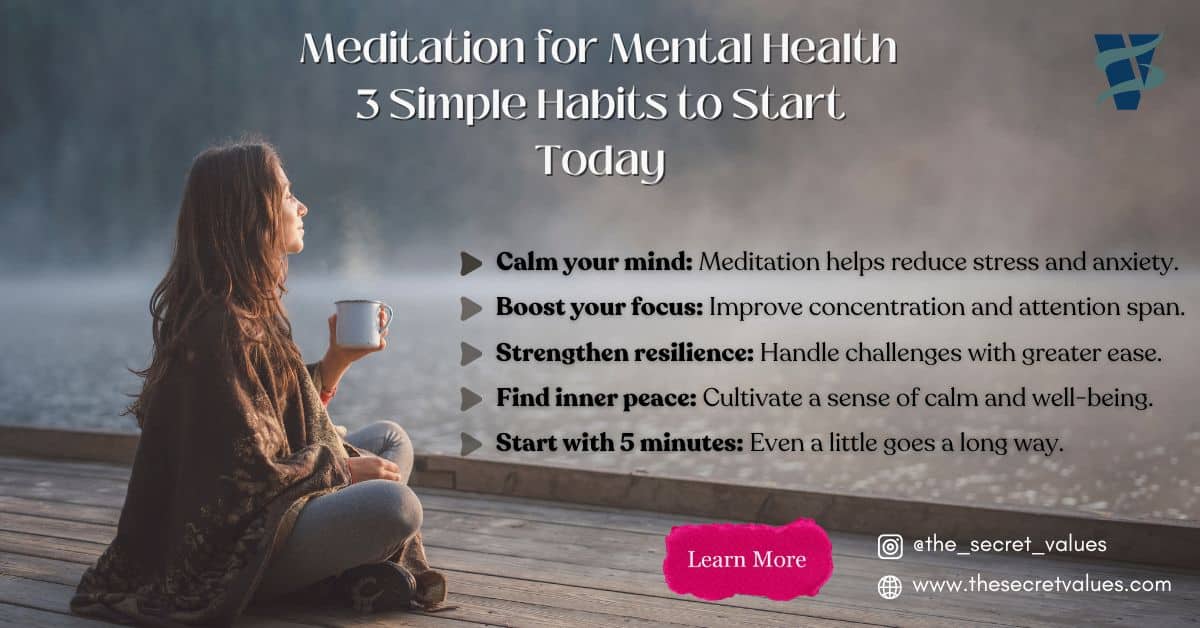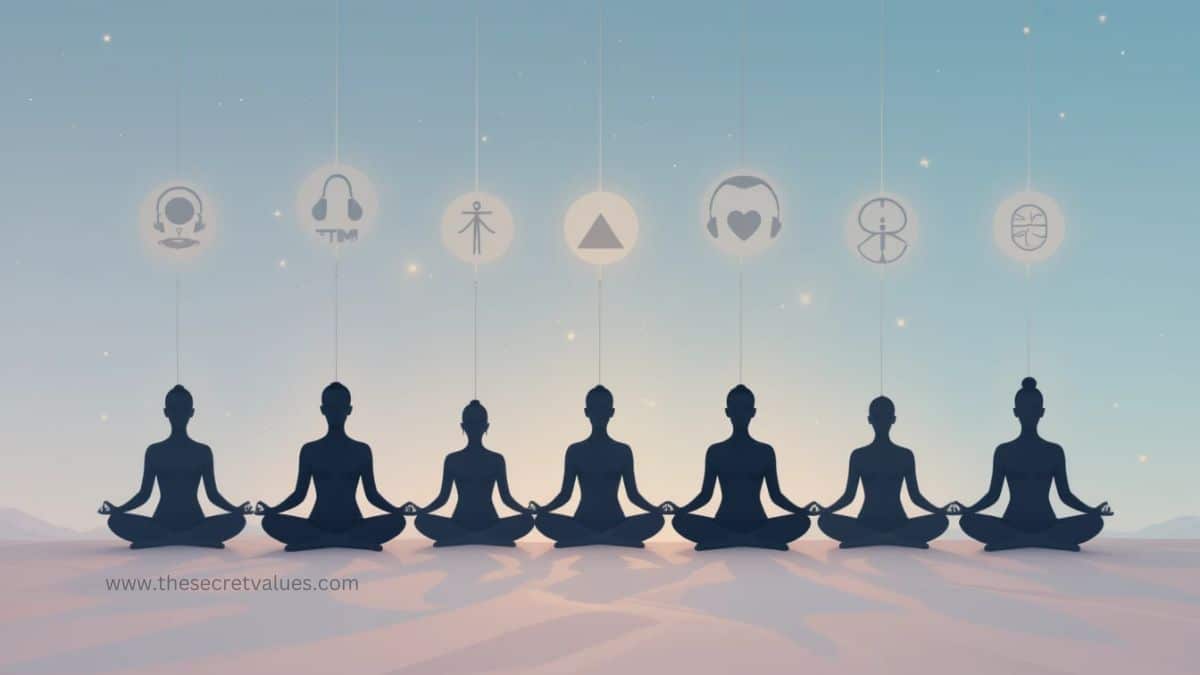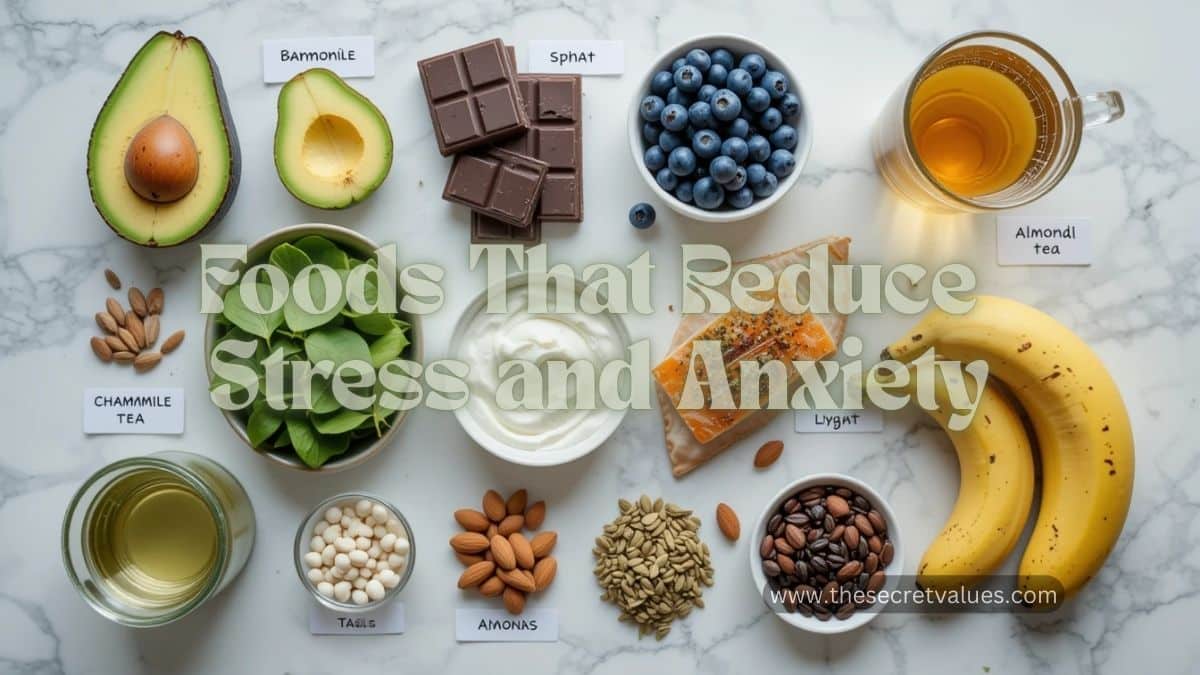Introduction
It is becoming more common to experience stress and anxiety in today’s fast-paced environment. We often overlook our mental health when balancing relationships, work, and an endless to-do list. But what if there was a quick, easy way to feel more at ease, focused, and emotionally resilient. Enter Meditation for mental health—a powerful tool to nurture your mental emotional well being and help you stay strong mentally.
What is Meditation, and Why is it Important for Mental Health?
The Concept of Meditation
Meditation isn’t just sitting quietly with your eyes closed. It’s an ancient practice designed to help you engage with your true self, calm your thoughts, and achieve clarity. From Buddhist monks to modern mindfulness coaches, Meditation has been a cornerstone of emotional healing for centuries.
Benefits for Mental Health
Your brain can be rewired through Meditation. Frequent practice enhances focus and emotional resilience while lowering stress, anxiety, and negative thought patterns. It’s similar to working out mentally, improving your capacity to manage life’s obstacles.
How Meditation Helps with Mental Emotional Well Being
The Mind-Body Connection
Our psychological and physical well-being are closely connected. When you meditate, you’re calming your mind and helping your body by reducing cortisol (the stress hormone) and improving overall well-being.
Mindfulness as a Foundation for Emotional Well-Being
Mindfulness is the art of staying present. Instead of letting your mind spiral into worries about the past or future, meditation anchors you to the present moment, promoting inner peace and reducing negative self-talk.
Habit 1: Start with Just 5 Minutes a Day
Why 5 Minutes Can Make a Difference
Think of Meditation as dipping your toes into a pool. Even 5 minutes daily can help you build momentum and make Meditation a habit. Small steps lead to significant results over time.
Creating a Consistent Routine
Consistency is key. Pick a time that works for you—morning, lunchtime, or before bed—and stick to it. Having a set space and routine makes it easier to show up every day.
Habit 2: Practice Deep Breathing During Meditation
Benefits of Deep Breathing
Deep breathing is a refreshment mechanism for both mind and body. It lowers stress levels, reduces heart rate, and helps you feel grounded.
Easy Breathing Techniques to Try
One simple technique is the 4-7-8 method. To help my writing process, I used these Grammarly AI prompts:
Prompts created by Grammarly
– “Paraphrase it” and then breathe out for 8. It’s a great way to calm your mind before or during Meditation.
Habit 3: Incorporate Guided Meditations
Why Guided Meditations Work
Guided meditations can be very beneficial if you need help staying focused. They provide thorough instructions that make it easier to unwind and maintain concentration.
Popular Apps and Resources
Consider trying apps like Headspace, Calm, or Insight Timer for guided meditations catering to beginners. These applications provide a variety of options designed to meet different requirements.
Overcoming Challenges in Meditation
Common Struggles Beginners Face
It’s normal to feel distracted or impatient when you start meditating. Your mind might wander, and that’s okay. The important thing is to return your attention calmly and without self-criticism.
Tips to Stay Motivated
Celebrate small wins! Noting your progress keeps you going, regardless of how long you’ve been meditating or how much your mood has improved.
Final Thoughts on Meditation for Mental Health
Meditation is a process rather than a final goal. Over time, forming these easy routines might improve your mental and emotional health. Start today—it’s never too late to invest in yourself.
FAQs
- What’s the best time to meditate for mental health?
Early morning or evening works best, but any time that fits your schedule is perfect. - How long should I meditate to see results?
Spending just 5 to 10 minutes daily can impact over a few weeks. - Can Meditation replace therapy for mental health issues?
Meditation complements therapy but doesn’t replace it. Always consult a professional for serious concerns. - Are there any risks associated with Meditation?
Meditation is generally safe, but some people may feel discomfort initially. Start slow and seek guidance if needed. - What tools or apps can help beginners start meditating?
Apps like Headspace, Calm, and Insight Timer are excellent for beginners.








1 thought on “Meditation for Mental Health: 3 Simple Habits to Start Today”